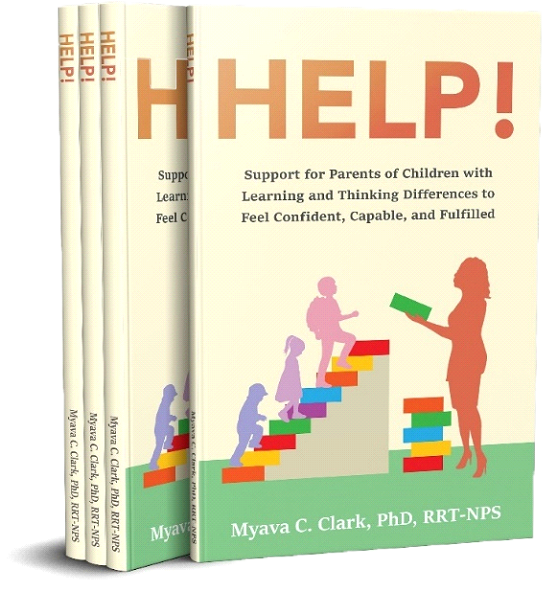Click here to play the Audio.
Stakeholders
Social-Emotional Learning (SEL) is widely recognized as essential, and evidence shows it drives academic success, mental health, and positive life outcomes. Yet too often, SEL efforts remain siloed: educators, therapists, and caregivers each work independently, leaving gaps in a child’s support network and overlooking the “whole child.”
CASEN takes a different, collaborative approach. CASEN’s Social Network Wellness Academy was co‑designed by classroom teachers and reviewed by physical, occupational, and speech therapists to ensure every lesson speaks to children’s diverse needs. By bringing together multiple experts, CASEN creates interdisciplinary, strength‑based lessons that nurture the full spectrum of social‑emotional skills because they believe every child is more than the sum of their parts.
CASEN’s academy’s four-module curriculum is tailored for 9–13‑year‑olds (focusing on neurodivergent children) and uses real social media platforms as teaching tools. Each module focuses on the “dos and don’ts” of a particular platform, covering topics like respectful communication, boundary‑setting, empathy, and digital safety. Through guided activities and interactive scenarios, children learn to navigate online spaces with confidence, self‑awareness, and emotional regulation.
By uniting educators, therapists, and caregivers in the design and delivery of their program, CASEN ensures that every child benefits from a seamless, holistic SEL experience, building on their strengths, filling their gaps, and empowering them to thrive both online and off.
Parents
Parents have access to their child’s course content and material, as well as their own private parent account.
Community
Healthy personal development through SEL is thought to combat public health problems.
Teachers
Teachers do not just instruct on the curriculum, they are invested in the student’s wellbeing.
Students
As students interact with peers. social-emotional wellbeing is supported through peer interactions.
Specialists
• Physical Therapists
• Speech and Language
Pathologist/Therapists
Administrators
District-level support of Social- Emotional Learning (SEL) is critical to ensuring meaningful educational experiences for students.
Social Network Wellness Academy Stakeholders

Children
As children progress through the CASEN Social Network Wellness Academy, their development is nurtured across all dimensions, mental, emotional, social, and physical, within a safe, supportive, and focused environment. CASEN believes that fostering social-emotional well-being is critical for preparing children not just for social media, but for life.
Social-emotional well-being encompasses both internal capacities (such as emotional regulation and self-awareness) and interpersonal competencies (such as empathy, respect, and conflict resolution). According to Jeba & Premraj (n.d.), children’s thoughts, behaviors, feelings, and abilities are direct reflections of their emotional well-being.
Through guided lessons in the Social Network Wellness Academy, children:
- Learn to identify, name, and regulate their emotions
- Practice calming strategies and self-management techniques
- Explore healthy online behaviors rooted in mutual respect and digital responsibility
- Identify their rights and responsibilities in the digital space
- Discover how to keep themselves safe, physically, emotionally, and intellectually
Peer-to-peer interaction is a core part of this process. Group activities and structured social interaction provide a rich environment for learning empathy, cooperation, and collaborative problem-solving. As Pepler and Bierman (2018) note, peer relationships are foundational to developing key social-emotional skills that will serve children for a lifetime.
In CASEN Connect, students learn how to craft clear and thoughtful messages in an online setting. With facilitator guidance, they begin with structured sentence frames and gradually build toward independent, complete thoughts suitable for social media. This approach strengthens both writing skills and online communication etiquette.
CASEN Outreach ensures children understand the real-world implications of their digital actions. Children are educated on:
- The risks of inappropriate online behavior and potential legal consequences
- How predators can exploit social media and how to stay safe
- The types of bullying, including cyberbullying, and how to report it
- The dangers and legal consequences of “sexting,” including potential federal charges
By addressing both the developmental needs of children and the realities of today’s digital world, CASEN helps young people build the confidence, skills, and awareness to thrive both online and offline.
References:
Jeba, J., & Premraj, C. (n.d.). Social and emotional well being of adolescents. IOSR Journal of Humanities and Social Science. e-ISSN: 2279-0837. https://www.iosrjournals.org/iosr-jhss/papers/Conf.17004/Volume-3/10.%2056-59.pdf
Pepler, D., & Bierman, K. (2018). With a little help from my friends- The importance of peer relationships for social-emotional development. Robert Wood Johnson Foundation. https://www.rwjf.org/en/library/research/2018/11/with-a-little-help-from-my-friends–the-importance-of-peer-relationships-for-social-emotional-development.html

Parents
At CASEN’s Social Network Wellness Academy, parents play an active and vital role in their child’s growth. Each parent receives access to a private account where they can view their child’s course materials, lessons, and progress. This transparency allows parents to stay connected, informed, and empowered to reinforce the learning and values taught in the program right at home.
In addition to educational access, parents are invited to join CASEN’s Parent Support Group, a safe, welcoming space to ask questions, share insights, and connect with other caregivers, teachers, and administrators. It’s a collaborative environment where parents can receive and offer advice, building a strong support network grounded in understanding and shared experience.
According to Social Development in Children (n.d.), parents can support their child’s social-emotional development in the following ways:
- Engage in daily conversations about school, friendships, and feelings
- Encourage children to talk through social conflicts and help them develop healthy problem-solving strategies
- Openly discuss bullying and harassment, both in-person and online
- Give older children space to navigate everyday challenges independently
- Keep lines of communication open, be available, listen with empathy, and offer guidance without judgment
CASEN believes that parents are powerful partners in raising emotionally healthy, socially aware, and confident children. Together, they’re building bridges between school and home to foster lasting success.
Resource:
Social Development in Children. (n.d.). Family Programs Scan of Virginia. https://scanfamilies.org/resource/social-development-in-children/

Teachers
Navigating and nurturing relationships is a critical part of the educational experience, for both teachers and students. Educators do more than deliver curriculum; they are deeply invested in their students’ overall well-being. Social-emotional learning (SEL) supports this connection by improving academic performance, fostering positive attitudes and behaviors, and reducing emotional distress.
Research from What Have We Learned (n.d.) shows that SEL leads to:
- Higher motivation and academic achievement
- Fewer negative behaviors, including aggression and disciplinary incidents
- Reduced emotional challenges like anxiety, depression, and social withdrawal
Even modest investments in SEL have long-term payoffs, not just for students, but also for schools and society as a whole.
According to the same source, effective SEL programs often include four essential elements, summarized by the acronym SAFE:
- Sequenced: Coordinated and connected activities that build on each other to develop skills
- Active: Hands-on learning methods that help students apply and reinforce what they’ve learned
- Focused: Intentional time dedicated to cultivating social and emotional competencies
- Explicit: Clearly defined goals targeting specific SEL skills
CASEN integrates these SAFE principles into every lesson. CASEN’s program builds social wellness through interactive, student-centered experiences that focus on emotional awareness, empathy, communication, and responsible decision-making. Students not only learn to recognize and manage their emotions but also develop the skills needed to form healthy relationships in a digital and real-world context.
Reference:
What Have we Learned. (n.d.a). CASEL. https://casel.org/systemic-implementation/sel-in-the-classroom/

Administrators
District-level coordination and support for Social-Emotional Learning (SEL) is essential to delivering meaningful and equitable educational experiences for all students. When school districts collaborate with families and community partners to establish SEL standards and benchmarks, they can embed these practices into academics, discipline policies, and student support systems—ensuring SEL becomes a foundational part of the educational culture.
Systemic implementation of SEL at the district level has been shown to significantly enhance student outcomes. According to What Have We Learned (n.d.b), districts that integrate SEL into their framework often see improvements in reading and math scores, higher attendance rates, better student behavior, increased social-emotional competence, and a reduction in suspensions. These efforts also contribute to more positive and supportive school climates, as reflected in district-wide surveys.
A notable study conducted in partnership with the American Institutes for Research (AIR) examined the outcomes of systemic SEL implementation across eight large urban districts in the U.S. The findings highlight the powerful impact that intentional, district-wide SEL strategies can have on student success and overall school improvement.
References:
What Have we Learned. (n.d.b). CASEL.
https://casel.org/systemic-implementation/sel-in-school-districts/

SPECIALISTS
Therapists play a vital role in advancing Social-Emotional Learning (SEL) by addressing the diverse needs of students through specialized interventions and collaborative care. Each discipline brings unique expertise that contributes to the overall development of a child’s social-emotional wellness.
Occupational Therapists (OTs) are uniquely qualified to support SEL through targeted interventions. With a deep understanding of how a child’s environment, psychosocial background, and performance abilities intersect, OTs help students develop key skills such as self-regulation, emotional control, and adaptive behavior (The Occupational Therapy’s Role in Mental Health Promotion, Prevention, & Intervention with Children & Youth – SEL, n.d.).
Physical Therapists (PTs) contribute to SEL by promoting physical activity that supports emotional and social well-being. As movement specialists, PTs create inclusive strategies and adaptive modifications to increase participation in physical activities, helping students build confidence, reduce stress, and improve peer interaction.
Speech-Language Pathologists (SLPs) also play a critical role, especially for students with Emotional and Behavioral Disorders (EBD). Children with untreated speech and language disorders may experience difficulties with social communication, leading to challenges such as isolation, behavioral concerns, and increased risk of involvement with the juvenile justice system (Armstrong, 2011). SLPs help these students develop expressive and receptive language skills essential for healthy relationships and emotional expression.
School Counselors and Mental Health Therapists further support SEL by providing instruction, short-term counseling, and referrals. According to the American School Counselor Association (2020), they advocate for students’ mental health by addressing academic, social-emotional, and career development, while also enhancing students’ self-awareness, decision-making, and relationship skills.
Through the CASEN Social Network Wellness Academy, these therapeutic efforts are reinforced with guided lessons and interactive modules. This collaborative approach ensures that students are not only receiving support from their providers, but also applying what they learn in real-time through a structured, safe online environment.
References:
Armstrong, J. (2011). Serving children with emotional-behavioral language disorders:A collaborative approach. Ashawire.
https://leader.pubs.asha.org/doi/10.1044/leader.ftr6.16102011.32
The occupational therapy’s role in mental health promotion, prevention, & intervention with children & youth social and emotional learning (SEL). (n.d.). The American Occupational Therapy Association, Inc.

Community
According to Jones, Greenberg, and Crawley (2015), recognizing and nurturing early social-emotional traits plays a critical role in helping children grow into healthy, thriving adults. Social-emotional learning (SEL) supports healthy personal development and is linked to the prevention of widespread public health challenges such as substance abuse, obesity, and violence.
Strong interpersonal skills are essential for children to navigate social settings effectively, and positive relationships with adults lay the foundation for lifelong success. The researchers emphasized that academic achievement is influenced not only by cognitive abilities but also by social-emotional competencies such as self-regulation, attention, and communication. Enhancing the social-behavioral environment of young children not only promotes their development but also has lasting effects on adult health, career success, and economic stability.
CASEN’s Social Network Wellness Academy supports this holistic growth by equipping students with the tools they need to thrive emotionally, socially, and academically. As students build skills in communication, collaboration, and conflict resolution, they are better prepared to engage meaningfully with their peers, educators, and communities. Over time, these competencies translate into stronger community ties, more productive workplaces, and a healthier society.
By investing in SEL through CASEN, communities benefit from a generation of confident, emotionally intelligent individuals who are capable of adapting, contributing, and leading with empathy and purpose.
Reference:
Jones, D. E., Greenberg, M., & Crawley, M. (2015). Early social-emotional functioning and public health: The relationship between kindergarten social competence and future wellness. AJPH. https://ajph.aphapublications.org/doi/full/10.2105/AJPH.2015.302630



